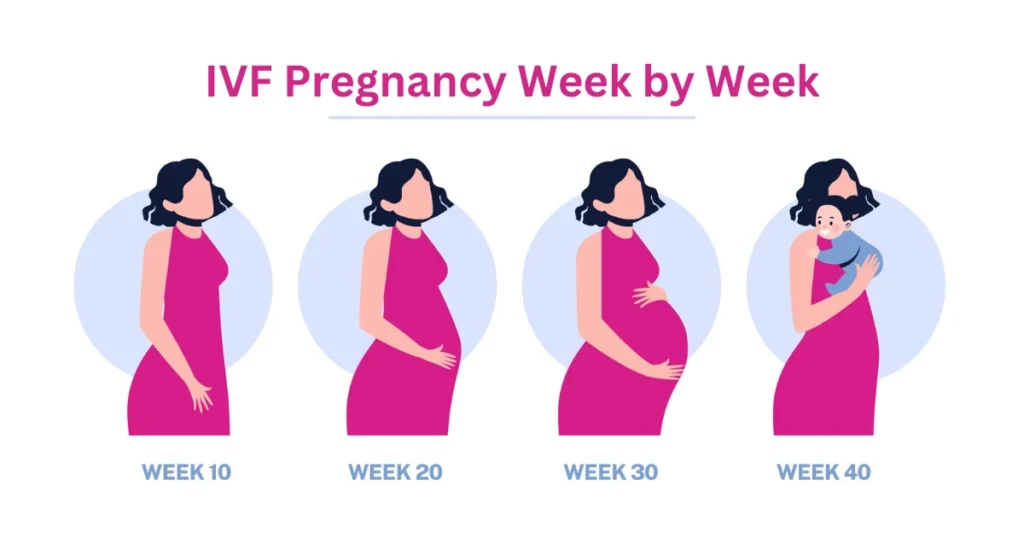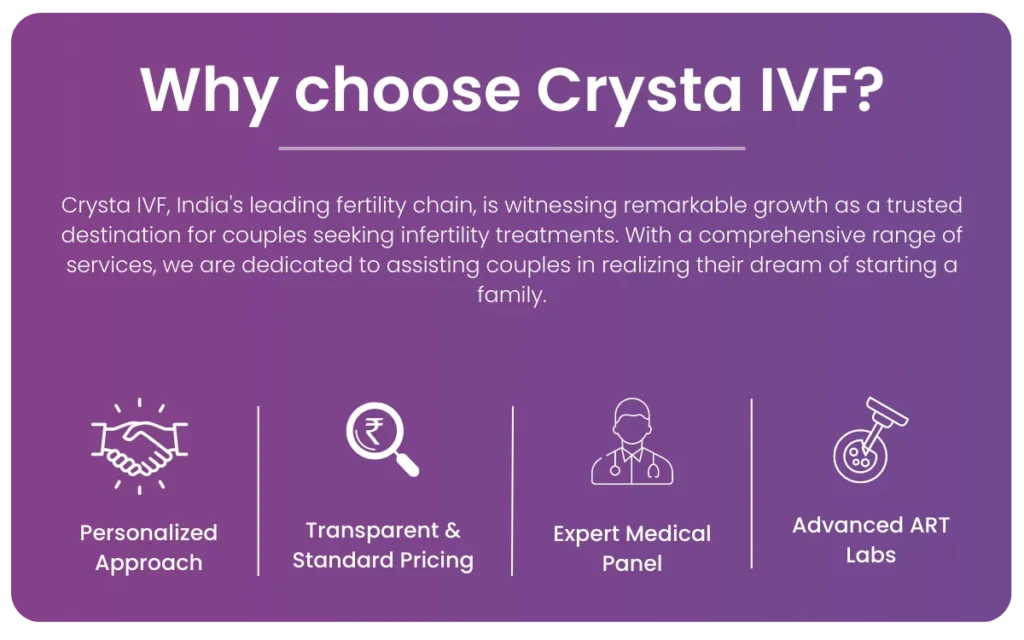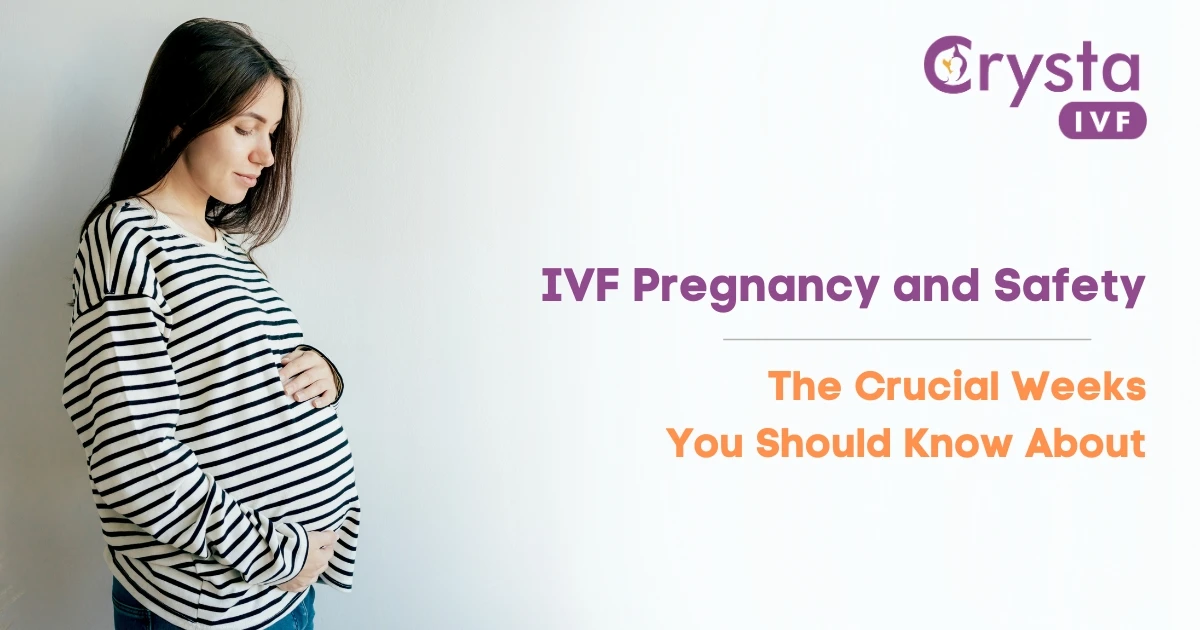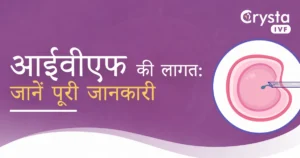Starting a family is a huge milestone for many couples, but it can be difficult for those struggling with infertility. In Vitro Fertilization IVF treatment has become a common option for couples unable to conceive naturally.
IVF has revolutionized fertility treatment, offering hope and possibilities to individuals and couples struggling to conceive naturally, but it comes with many questions and concerns.
One of the most common questions is how long after IVF pregnancy is considered safe. While there is no one-size-fits-all answer, there are guidelines that can help couples make informed decisions about their pregnancy and their baby’s health.
So, let’s explore what factors determine the safety of an IVF pregnancy and what couples can do to ensure a healthy pregnancy and baby.
A Brief About IVF & When Do You Need It
In today’s world, assisted reproductive technologies have opened up new possibilities for couples facing infertility challenges. One such groundbreaking technique is in vitro fertilization (IVF).
IVF is a fertility treatment that involves retrieving eggs from a woman’s ovaries and fertilizing these eggs with sperm in a laboratory. The resulting embryos are then carefully monitored and transferred back into the woman’s uterus for implantation and pregnancy.
Here are some of the conditions that may require IVF treatment:
- Blocked or damaged fallopian tubes
- Low sperm count or motility
- Ovulation disorder
- Advanced maternal age
- Unexplained infertility
- Endometriosis
- Polycystic ovary syndrome (PCOS)
Understanding the Stages of IVF Pregnancy
Understanding the stages of IVF pregnancy is crucial for intended couples to navigate this process confidently. The journey begins with the initial steps of fertility medication and egg retrieval, followed by fertilization, embryo development, and implantation.
Once the embryos reach a particular stage, they are transferred back into the uterus for implantation. Throughout IVF pregnancy, regular monitoring is of utmost importance. This includes tracking hormone levels, assessing the growth and development of the embryos, and closely observing the implantation process.
Monitoring ensures the safety and progress of the pregnancy and allows healthcare providers to make necessary adjustments and provide support when needed.
IVF Pregnancy Week-by-Week & Assessing the Safety of IVF Pregnancy

A. Early Pregnancy (Weeks 1-8)
Week 1-8 marks the starting point of your IVF pregnancy. It begins with the much-awaited fertilization of the egg by a sperm. These early weeks of an IVF pregnancy are filled with remarkable milestones. From fertilization to the formation of vital structures, each week brings new developments.
- Week 1: Fertilization and early embryo development.
- Weeks 2-3: Implantation and formation of the gestational sac.
- Weeks 4-5: Confirmation of pregnancy and detection of fetal heartbeat.
- Weeks 6-8: Continued embryo development and establishment of the placenta.
Risks:
One of the primary concerns during the early weeks of an IVF pregnancy is determining the embryo’s viability and assessing the risk of miscarriage. The fertility specialist closely monitors the embryo’s development to ensure it progresses as expected.
Precautions during the Early Weeks:
During the early weeks of an IVF pregnancy, it is crucial to take certain precautions after IVF pregnancy to support a healthy outcome. These include:
- Avoid strenuous physical activities
- Follow a well-balanced diet
- Avoid smoking and alcohol
- Minimize exposure to harmful substances
- Regular check-ups with the fertility specialist
B. Mid-Pregnancy (Weeks 9-20)
Reaching the mid-pregnancy stage is a significant milestone for couples undergoing IVF treatment. It marks a time of increased confidence and excitement as the pregnancy progresses.
From organ development to the baby’s first movements, each week brings anticipation and a deeper connection.
- Weeks 9-12: Transition to the fetal stage and organ development.
- Weeks 13-16: Maturing of fetal organs and skeletal system.
- Weeks 17-20: Development of vernix caseosa (covering on the fetus’s skin) and baby’s first movements.
Risks:
Mid-pregnancy is a stage where the baby undergoes significant developmental milestones. Fertility doctors closely monitor these milestones to ensure the baby’s health and well-being. Various screening tests, such as genetic or anatomy scans, may be recommended to identify potential health concerns or abnormalities.
Precaution during the mid-pregnancy:
Regular check-ups and prenatal care play a vital role in assessing the safety of an IVF pregnancy during mid-pregnancy. Expectant mothers are advised to attend routine appointments with their healthcare providers.
These appointments generally involve monitoring blood pressure, weight gain, and urine analysis, as well as assessing the overall health of the mother and the baby.
Prenatal care also involves discussing any concerns or discomforts experienced by the mother and receiving appropriate guidance and support.
C. Late Pregnancy (Weeks 21-40+)
Late pregnancy is a time of anticipation and readiness as the IVF journey nears its final stages. Assessing the safety of the pregnancy during this period involves monitoring fetal growth, movement, and overall well-being, as well as preparing for labor and delivery.
Making it to the third trimester is a significant milestone in an IVF pregnancy. It signifies that the baby has reached a stage of maturity where their chances of survival outside the womb significantly increase.
- Weeks 21-24: Viability milestone and continued growth.
- Weeks 25-28: Rapid brain development and lung maturation.
- Weeks 29-32: Increased baby movements and preparations for birth.
- Weeks 33-36: Baby’s position and readiness for delivery.
- Weeks 37-40+: Final weeks, full-term pregnancy, and signs of labor.
Risks:
During late pregnancy, monitoring the growth and movement of the baby becomes essential. Doctors may use various methods to track fetal development, such as measuring the mother’s abdomen or performing ultrasound scans.
Assessing the baby’s movements is also crucial, as a decrease in activity or pattern changes could indicate potential immediate issues.
Precautions during the late pregnancy:
As the due date approaches, focusing on preparing for labor and delivery is essential. This includes attending regular prenatal check-ups to monitor the progress of the pregnancy and discuss any concerns or questions with your gynecologist or fertility specialist.
Mother-to-be can also join childbirth classes to learn about the labor process, pain management techniques, and newborn care.
After How Many Weeks Is an IVF Pregnancy Considered Safe
An IVF pregnancy is generally considered safe after the first trimester, which is approximately 12 weeks. This is because the risk of miscarriage drops significantly after this point, and the pregnancy becomes more stable.
But it’s crucial to get regular prenatal care, take prenatal vitamins, adopt a healthy lifestyle, get enough rest, and talk to your doctor about any concerns and discomfort.
However, it’s important to note that no pregnancy is 100% safe, and there is always a risk of complications, even after 12 weeks. The safety of an IVF pregnancy can also depend on various factors.
Factors Affecting the Safety of IVF Pregnancy
- Age of the woman undergoing IVF
- Underlying medical conditions (endometriosis, PCOS, hypertension, diabetes, etc.)
- Several embryos transferred
- Quality of embryos
- Lifestyle factors
- IVF clinic and expertise
- Use of donor eggs or sperm
- Preimplantation genetic testing
- Monitoring and medical care

Start Your IVF Journey With Crysta IVF
When starting your IVF journey, Crysta IVF in Delhi, trusted fertility chain in India is your trusted partner. As India’s most trusted fertility healthcare provider, we prioritize your well-being and provide exceptional care every step of the way.
From the moment you enter our doors, you’ll experience the love and dedication that goes into our treatments. Our support extends beyond the initial stages, accompanying you through the entire process of creating your family.
Whether it’s the good news of a positive pregnancy test or the miraculous moment of childbirth, we are here for you, offering unwavering guidance and care.
So, let Crysta IVF be the support you need to fulfill your dreams and build the family you desire.





Pretty nice post. I just stumbled upon your weblog and wished to say that I’ve truly enjoyed browsing your blog posts. After all I will be subscribing to your feed and I hope you write again soon!
Thank you. Glad you found this blog post helpful. Stay tuned for more informative blogs
This post is exceptionally radiant. I really like this post. It is outstanding compared to other posts I’ve read in quite a while. Much obliged for this better-than-average post. I genuinely value it!
Thank you. Glad you found this blog post helpful. Stay tuned for more informative blogs
Amazing blog post you have shared here. Keep sharing such amazing and useful blog posts with us. We would love to read your upcoming blogs.
Thank you. Glad you found this blog post helpful. Stay tuned for more informative blogs.